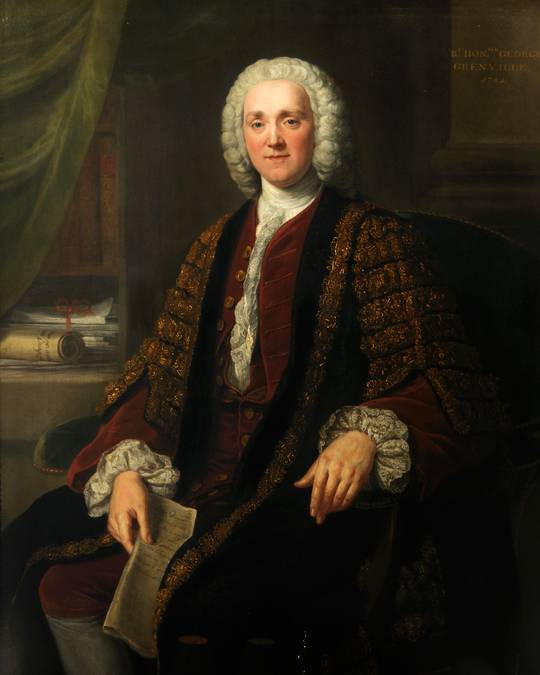Grenville (1712-70), an intelligent man, able administrator, good Commons speaker and personally un-corrupt, began his career as an opposition Whig, then achieved junior office under Henry Pelham, but was passed over by Newcastle and Pitt. He consequently became close to Bute, being politically a moderate Tory (in 1749 he had married a daughter of the Tory leader William Wyndham (1688-1740)) and argued his way into a Secretaryship of State on Bute’s accession to power. Grenville proved a difficult Cabinet colleague but got the top job when Bute resigned. He then ran into difficulty because his peremptory manner grated on George III, even though his policies such as establishing direct territorial rule in India were attractive to the King.
Relations between Grenville and the King deteriorated, not helped by behind-stage meddling by Bute, while Grenville’s overall position was sapped by the continuously hostile Whig-controlled media. Eventually the King grew so desperate to be rid of Grenville that after sounding out Pitt, he appointed, through his uncle Cumberland, the heavily Whig Rockingham to replace him. This extreme switch naturally threw policy into chaos, but until Grenville’s death in 1770 the King’s choice of ministers was largely governed by not wanting him back in office.
Grenville has been condemned by posterity as author (together with Charles Jenkinson) of the 1765 Stamp Act, which drove the American colonists towards rebellion. The Stamp Act was a moderate and sensible piece of legislation. However, Grenville’s fall before it came into effect and the Rockingham government’s repealing it after American agitation greatly strengthened the anti-British faction in the colonies as well as giving spurious credibility to the Boston mob.
Grenville’s temperament condemns him to a ranking near the bottom, much lower than he would otherwise deserve. If he had been even a little easier to work with, he might have had a long and successful period of Tory reform in office.
